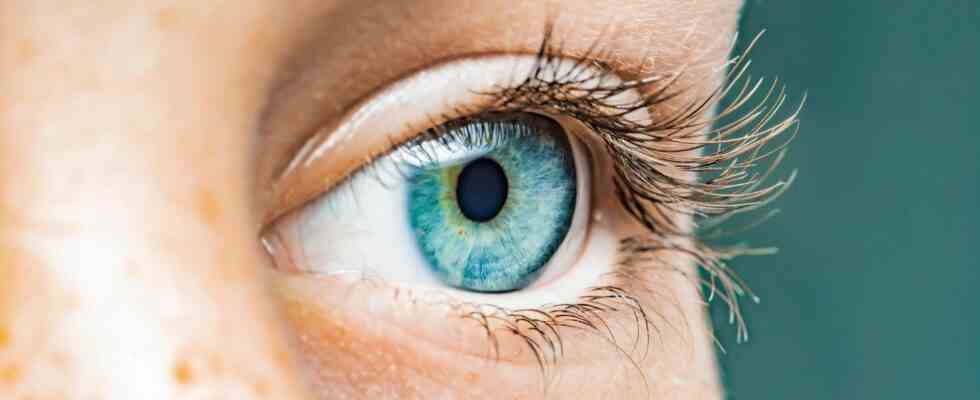Unusual suggestion
Study shows: Simple hack can improve eyesight – just three minutes a day needed
Many people lose their sight as they get older. However, this is reversible, as researchers have now discovered.
©Getty Images
Eye specialists from London have dealt with the problem of declining eyesight in old age. During an experiment, they discovered something exciting that could revolutionize ophthalmology.
With increasing age, the eyes get worse – many people experience this firsthand. From the age of 40 we have to reach for reading glasses more and more often, watching TV becomes more strenuous, computer work causes headaches. “Our retinal sensitivity and color perception are gradually decreasing, which is becoming an important issue with an aging population,” says Glen Jeffery, an eye specialist at the London College of Ophthalmology.
According to the researchers, one of the reasons for the declining vision is the fatigue of the mitochondria in the retinal cells. They need a lot of energy and therefore die earlier than other cells in the body. However, certain wavelengths of light also supply these cells with energy – deep red light in particular was good for the eyes of flies in animal experiments. But they are built quite differently than human eyes.
Study shows: red light for better eyesight
The scientists started an experiment in which they closely examined 24 people between the ages of 28 and 72 who had no eye diseases and tested their eyesight. The subjects were then asked to look directly into the deep red light for at least three minutes a day for a period of two weeks. It was then tested whether this had affected the eyesight. And the results were surprising.
While nothing had changed in the younger test subjects – neither improved nor worsened – the older test subjects were suddenly able to recognize and distinguish colors much better after the 14 days. This ability had improved by up to 20 percent in some individuals. And the ability to see light and dark had also improved, although not quite as drastically.
“Our study suggests that short-term exposure to wavelengths that stimulate fatigued retinal cells can significantly improve the vision of people who have declined with age,” said eye specialist Glen Jeffery.
Sources: UCL, “Journals of Gerontology”



